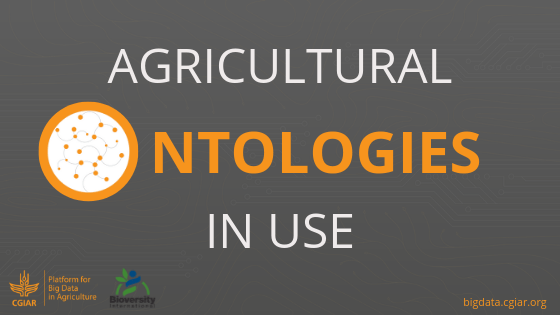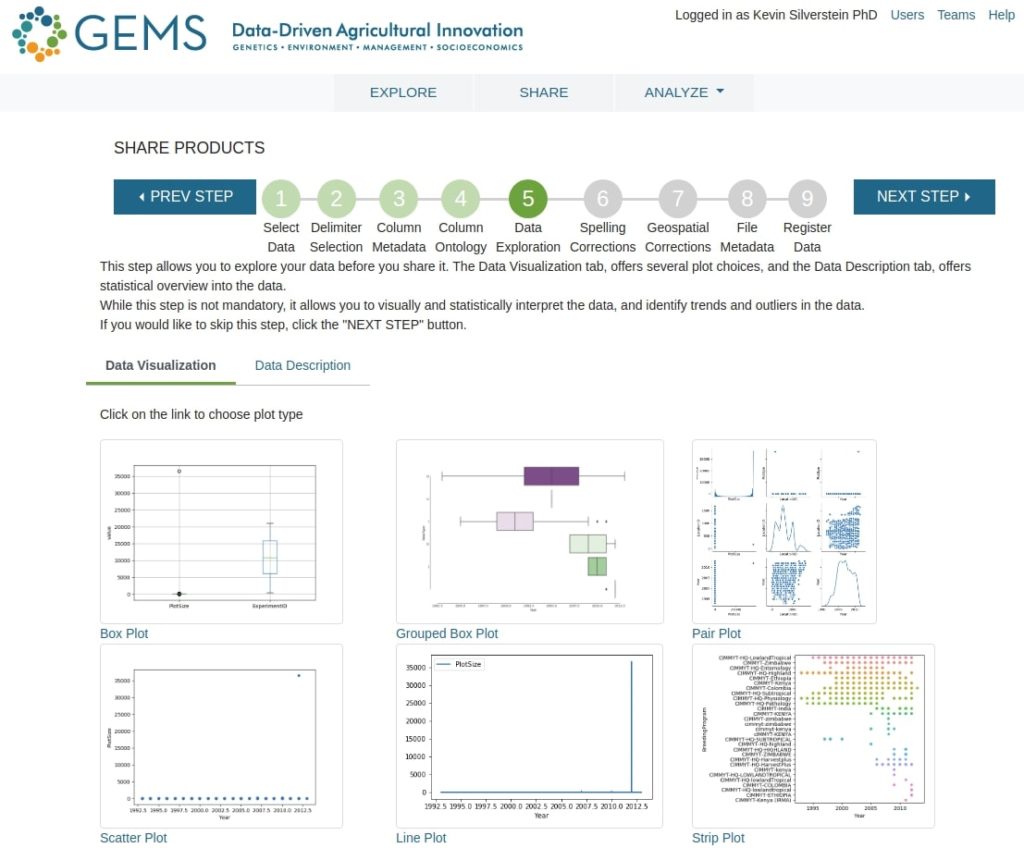Agricultural Ontologies in Use: The GEMS Platform
The Ontologies Community of Practice is engaged in the development of ontologies for agricultural research. In a series of blog posts, we’ll take a look at ongoing ontologies projects and developments.
Some key features of GEMS include its smart data sharing capabilities which support open, private and partner-pooled data, a growing suite of data cleaning, imputation and standardization tools, and the ability to do high-end analytics within the platform.
GEMS has engaged with the ontology community, and in particular CGIAR Platform for Big Data in Agriculture’s Ontologies Community of Practice, toward the goal of improving the standardization and interoperability of data.
GEMS has active partnerships with a growing group of public and private sector organizations, including USDA, Foundation for Food and Agricultural Research, Genomes to Field, Soil Health Partnership, PepsiCo, the CGIAR Platform for Big Data in Agriculture, Embrapa, Foundation for a Smoke-Free World, Diversity Arrays Technology, University of Adelaide, and Stellenbosch University among others.
Recent developments have focused on creating a federated hub of the GEMS platform at Stellenbosch University, South Africa and improving the mapping of user-input data onto ontological frameworks. GEMS also supports a significant Agricultural Internet of Things (AIoT) effort to develop and deploy a system of low-cost, plug and play, networked sensors. The AIoT streams directly to the GEMS platform, which captures, integrates, and processes ground-sensed data along with complementary remote-sensed inputs.
September 30, 2019
Kevin Silverstein, PhD
GEMS Operations Manager
University of Minnesota
Minneapolis United States of America
Latest news






